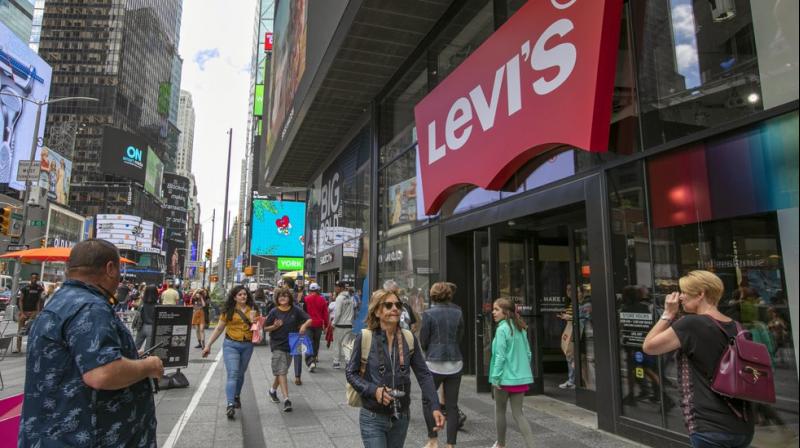Retail stores shutting down with increasing popularity of online shopping

New York: It used to be considered the retailer’s crown jewel, a large format store on a swank corridor that showed off the best of what a brand had to offer.
But now the so-called flagship store is disappearing from high-profile shopping thoroughfares like Manhattan’s Madison Avenue and Chicago’s Magnificent Mile because of skyrocketing rents and the shift to online shopping.
Over the last year or so, Gap, Tommy Hilfiger, Lord & Taylor and Polo Ralph Lauren have closed their flagship stores on Manhattan’s Fifth Avenue. Abercrombie announced in May that it was closing three more of its big locations — an Abercrombie store in Milan, an Abercrombie store in Fukuoka, Japan and a Hollister-branded store in Manhattan’s SoHo area. The announcement came after the teen retailer shut down flagships in Hong Kong and Copenhagen.
Other retailers are reimagining the flagship concept instead of abandoning it altogether. Nike, for instance, opened a massive store on Fifth Avenue late last year that doesn’t have any cash registers. It lets shoppers see details of items displayed on a mannequin by scanning the QR code and then having those items delivered to a fitting room or a designated pickup spot. Levi Strauss & Co.‘s new flagship in Manhattan’s Time Square features larger dressing rooms with call buttons and tailors who can add trims and patches to customers’ jeans.
Those still clinging to the old concept, however, are having a harder time. The latest victim could be Barneys New York, which opened its 10-story Madison Avenue store in 1993 and became a cultural icon in luxury shopping but now risks closure. High rents and a dramatic shift toward online shopping are pressuring it to evaluate restructuring options, including possible bankruptcy, according to a source close to the matter who asked to remain anonymous because the discussions are confidential.
Joseph Aquino, who runs his namesake real estate services firm, says the days of the shop-til-you drop mentality on Madison Avenue popularized by the HBO popular series of the 1990s “Sex in the City” are over.
“She was 45 and now she is 65... She isn’t shopping like she was 45,” Aquino said. “We are in the phase where a lot of younger shoppers don’t want to go the high street. They sit around and buy online and that’s what we are fighting against.”
The concept of a flagship store is more than a century old and used to be limited to retailers’ biggest store — one in their first or most prominent location. But in the last 20 years, a flagship store frenzy took hold and retailers from Gap to H&M looked at them as a must-have shrine to their brands, opening multiple flagships in multiple locations. Not only that but they were willing to pay exorbitant sums of money to showcase their merchandise in luxury corridors.

